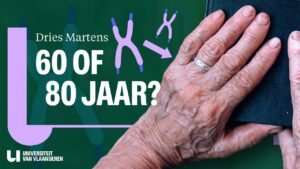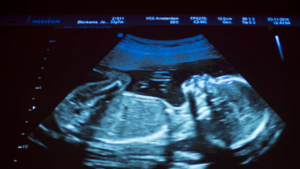During the burning of fossil fuels such as diesel, soot particles are emitted into the atmosphere, known to be carcinogenic. For some time, scientists have suspected that these soot particles can be transferred to the foetus via the placenta, as can nutrients and oxygen. Until now, however, direct evidence for this has been lacking. Dr Tim Nawrot and Dr Hannelore Bové of UHasselt have now been able to demonstrate that this is possible.
Bové examined 28 placentas using a laser technique that had previously allowed her to identify soot particles in urine and blood samples. In ten mothers exposed to high levels of air pollution during pregnancy (2.42 micrograms per m3), a significant concentration of soot particles was observed in the placenta. In ten mothers exposed to low levels of air pollution (0.63 micrograms per m3), the concentration of soot particles in the placenta was significantly lower.
It was also noteworthy that a higher concentration of soot particles was found on the foetal side of the placenta than on the maternal side. This suggests that soot particles gradually accumulate on the foetal side.
The impact of soot pollution on the foetus and later on the child is not yet fully known and needs further research. However, it is known that air pollution has been associated with preterm births and lower birth weight. In addition, it is known that during the early stages of pregnancy, where Bové and Nawrot were able to identify soot pollution, the child is particularly vulnerable because it is then at a crucial developmental stage.
There are currently no specific guidelines on how much airborne soot particles are acceptable. However, the researchers believe that intervention is necessary. Nawrot illustrates this with the comparison: "Just as we now look back in surprise at the fact that smoking was allowed everywhere a few decades ago, in 50 years' time we will look back at this period of soot pollution and be shocked that so little action has been taken against it."





